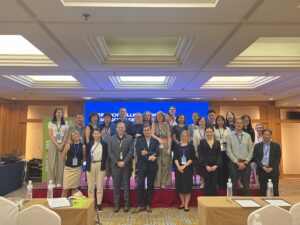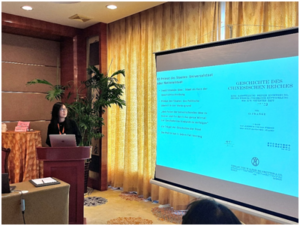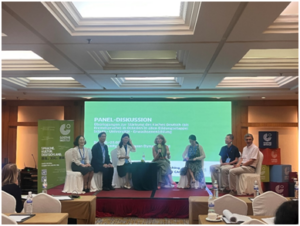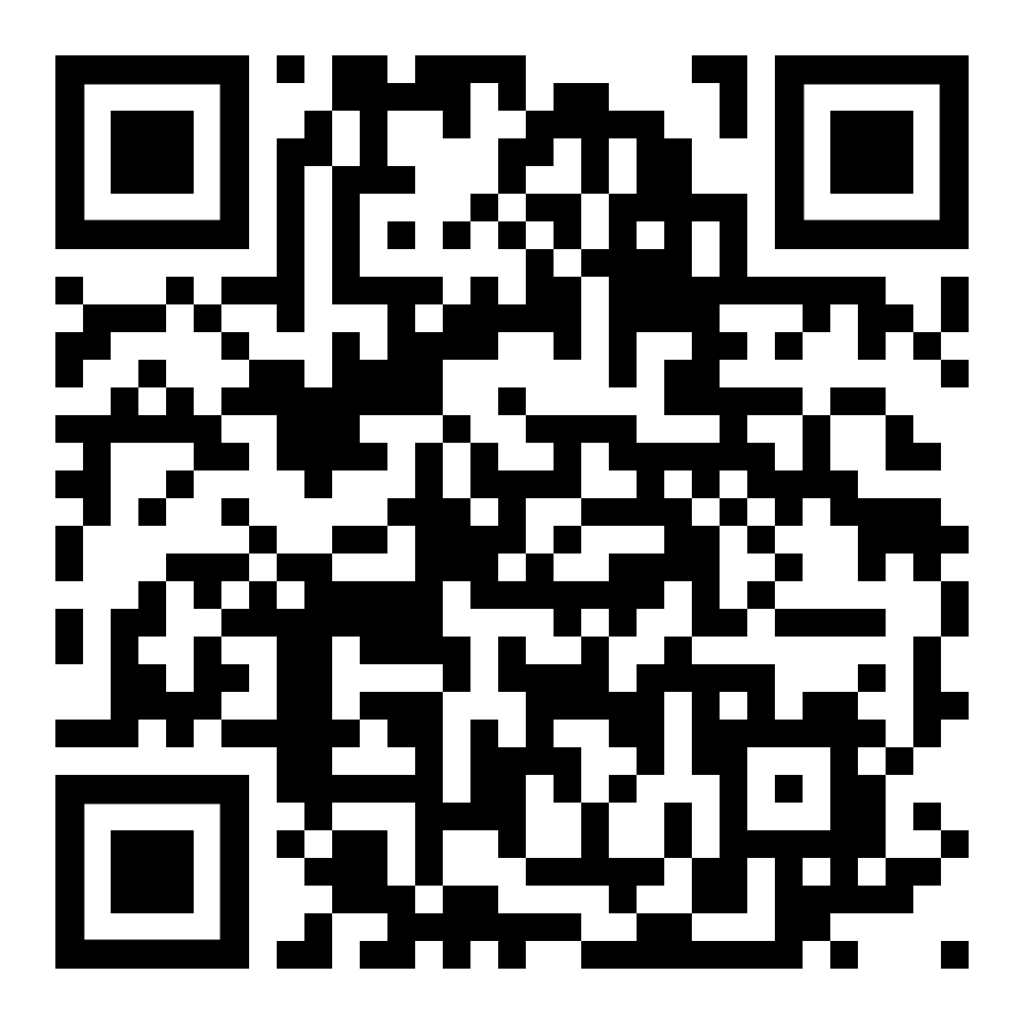
From August 26 to 28, the 2024 Asian German Studies Conference took place in Qingdao under the theme “Technology · Society · Culture – Challenges and Opportunities for German Studies Today.” The conference covered a wide range of fields including literary studies, linguistics, translation studies, intercultural communication, DaF (German as a foreign language) methodology and didactics, as well as regional and cultural studies. Today’s world is undergoing profound transformations: On the one hand, rapid technological development, especially in the field of artificial intelligence, has significantly facilitated people’s lives and work. On the other hand, global issues such as public health crises, environmental pollution, climate change, and regional conflicts are becoming more severe. How can German Studies address the great challenges of our time, and what can it contribute in this context? What role can German scholars in Asia play in times of crises and opportunities? A total of 226 German scholars from various countries and regions around the world gathered in Qingdao to exchange ideas and discuss the challenges and opportunities for German Studies through plenary lectures, panel discussions, and section meetings.
At this conference, our Chinese director, Associate Professor Huang Yirong, participated in the session on August 27 as a member of the organizing committee, while our Educational Director, Gao Qian, was invited by the co-organizer, the Goethe-Institut China, to give presentations.

In the section “German Translation and Interpretation of Chinese Classics,” Associate Professor Huang Yirong focused on Otto Franke (1863-1946), a renowned German Sinologist. She systematically interpreted Franke’s perspective on China, based on his views of Chinese history and historical primary sources in the German language. Otto Franke is a founding figure of German Sinology, with a unique understanding of Chinese history, culture, and China’s foreign and domestic policies during the late Qing Dynasty. His work exerted a significant influence on both political and academic circles in Germany. In her lecture, Associate Professor Huang analyzed Franke’s views on Chinese history from multiple perspectives, including the concept of the state in ancient China, the rise and development of Chinese culture, as well as the fate and future direction of traditional Chinese culture in modern times. She linked these aspects with Franke’s life path, elaborated on the general characteristics of modern German Sinology, and encouraged the participants to reflect on Chinese history and culture.

In the section “Networking to Strengthen the Field of German as a Foreign Language”, Gao Qian participated in an expert panel discussion at the invitation of the co-organizer, the Goethe-Institut China. Together with renowned experts from Japan, South Korea, and China, he actively discussed the opportunities and challenges facing DaF teaching in the new era, ways to increase public interest in learning German, and how to improve the quality of German teaching. In the afternoon, Gao Qian delivered the presentation “The DaF Expert Network of the Goethe-Institut China,” alongside Vera Trojansky, director for German Education Cooperation at the Goethe-Institut China, and Wu Suowei, a German teacher at Hangzhou Entel Foreign Language School. As “DaF experts” of the Goethe-Institut China, they explained the original idea behind the establishment of the DaF Expert Network. They provided a detailed overview of the network’s role and contributions in DaF teacher training over the past years and offered insights into the future development of the network. Additionally, they answered questions from the participants.

Our teachers’ participation in the 2024 Asian German Studies Conference not only gave them a comprehensive understanding of the latest developments in German Studies, but also provided valuable opportunities for direct exchanges and learning from numerous German scholars. Furthermore, it allowed us to showcase the outstanding achievements of our teachers in both research and teaching. We will continue to strive to improve the professional skills of our teaching and management team in the fields of German Studies and DaF instruction, and we will incorporate the latest and best research and teaching outcomes into our German language classes and teacher training programs, in return for the continued support and recognition from society!
